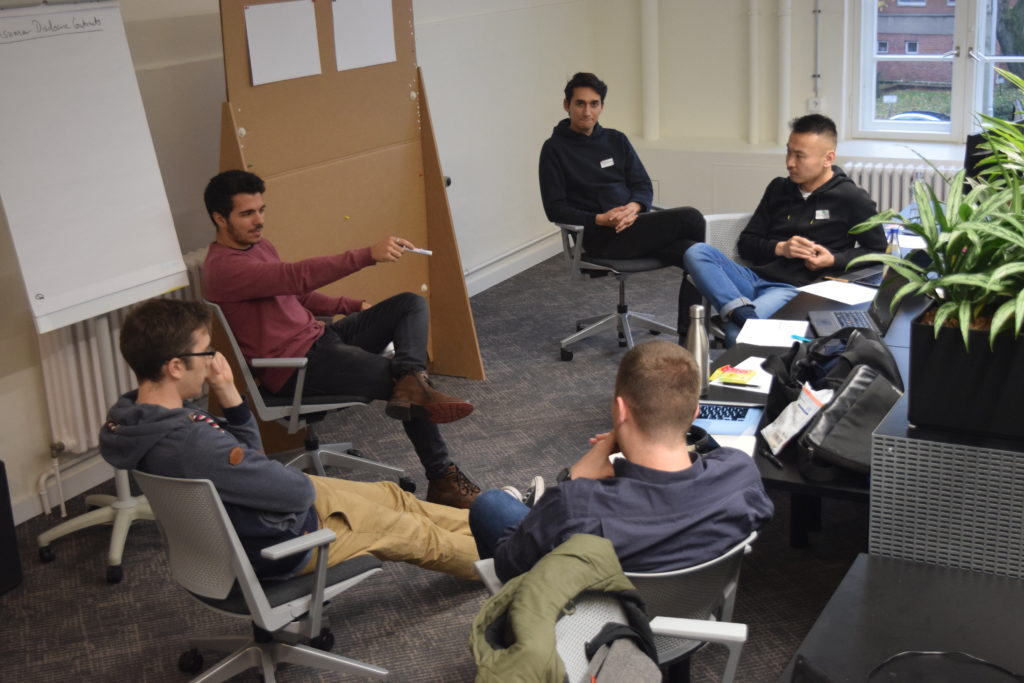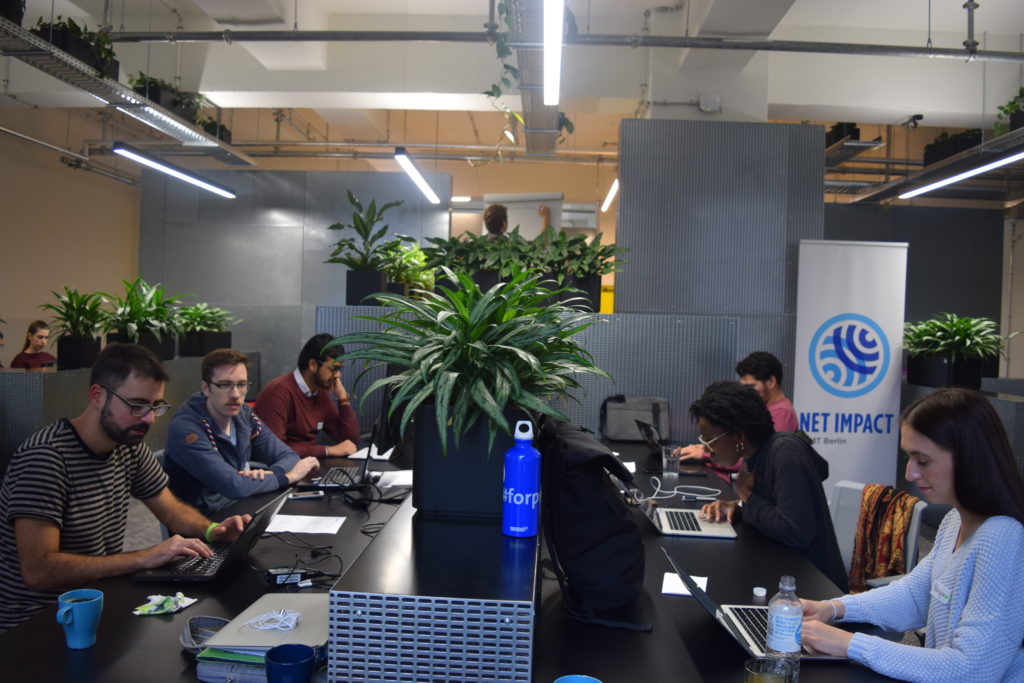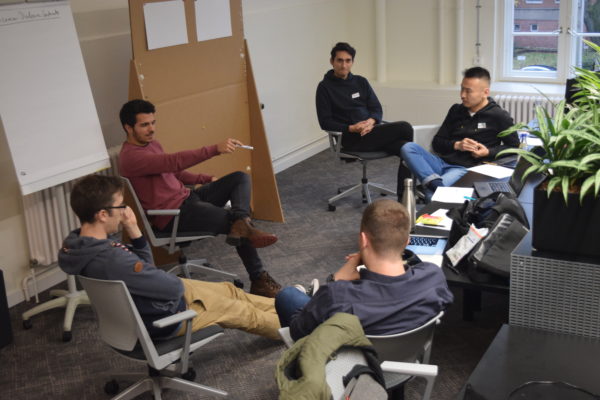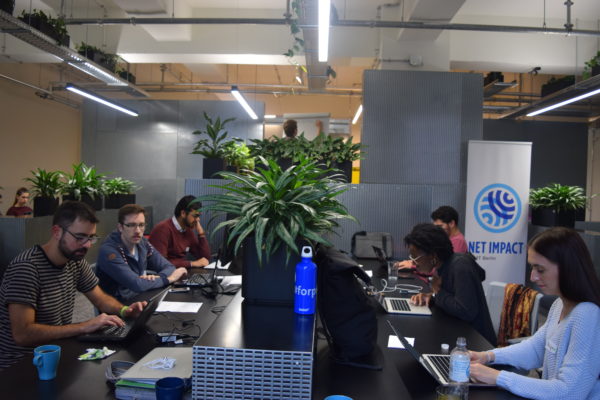The international collaborative hackathon (or “Collabathon”) for a Global Climate Accounting system started on Saturday 16 November and has been going on for two weeks. Following an initiative of the Yale Open Lab, a kick-off weekend took place in 6 nodes around the world including a node in Berlin. The DFKI Open Source Lab for Sustainable Mobility participated and supported the event. The organizers have very high intentions on promoting their idea, aiming to present a demo of the system at the international meeting of COP25 in in Madrid.
The idea behind the Collabathon is to create an accounting system that will consistently track the environmental impact of all climate stakeholders (e.g. states, cities, companies, individuals), in an effort to meet the goal of avoiding a further anthropogenic warming of the planet of more than 1,5°C. The platform will be based on an open-source framework of distributed ledgers, that will allow the interoperable co-opration of hundreds of autonomous modules that might already exist or will be developed as part of similar activities in the future. As the organizers claim, the notions of the block-chain technology, apart from their existing usage in cryptocurrencies, can be profoundly extended to cover the needs of a software tracking and optimizing the environmental implications of human activities worldwide.
About 15 people participated in the hacking efforts that took place at the Berlin node, organized by Netimpact-ESMT at the Drivery co-working space. The efforts concentrated on 4 prompts:
- One of the teams has been focusing on the Climate Terminal. According to the organizer description “the goal of this prompt is to develop a Bloomberg Terminal like interface but with a focus on climate change. This would mean displaying statistics on climate change, displaying the different markets climate assets trade on, and displaying the latest news from around the world on the progress and impact of climate change”. The efforts of the Berlin hackers focused in adapting an existing news aggregation systems and other data sources to mine and display the relevant information. The efforts led to some code employing a front-end in ReactJS and ΝodeJS and even a twitter account.
- A second team got engaged with visualizing the models and the data of the Paris Equity Check, through a widget at the Open Climate Platform. The aim is to augment the existing interface by displaying an assessment of how ‘fair’ emission reduction targets are for each country, so that a climate progress accounting can be framed within this analysis.
- When it comes to Consumer Disclosure contracts for Sustainable Chains, one of the teams in Berlin, including one participant of the Open Source Lab, set the goal to create the “EcoWidgy”: a browser add-on that is expected to analyse the products of online shops and provide an easy explanation of their environmental impact. The analysis went further by promoting the transparency of the supply chains and investigating the usage of Life-cycle Assessment and Material Flow analysis. The team’s ideas inspired a team in Paris which worked on the idea of representing the environmental impact through a single value. Another team in Los Angeles has expressed interest to continue working on this idea too.
- Finally, a fourth Berliner team worked on the idea of saving the planet “One plant at a time”, by suggesting the creation of an Instagram-like social platform where users would be able to exchange pictures and information about their plants.
The Collabathon is being continued as this article is being written. We are excited to follow the development and looking forward to seeing the results!



